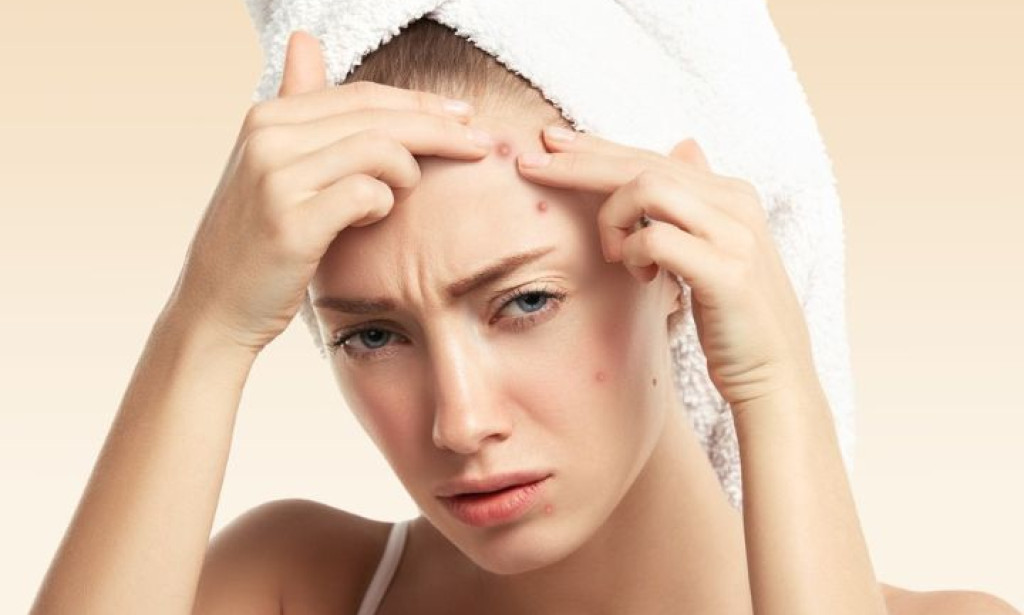As someone who has experienced the discomfort of acne, especially during the monsoon season, I’m familiar with the toll that hot, humid weather and excessive sweating can take on one's skin.
This guide is your key to understanding how monsoons impact your skin, why monsoon acne occurs, and ways of maintaining healthy skin during monsoon season. Armed with this knowledge, you can confidently manage your skincare program and avoid monsoon acne.
Ready to delve into the science of skin, acne, and humidity? Let's get started!
The Science Of Skin, Acne And Humidity
The monsoon season increases humidity, giving us a feeling of stickiness accompanied by excessive sweating. This can be true since humid air may make dead skin cells soft and quickly block the pores. High humidity affects the sebaceous glands to produce more sebum, so bacteria have a conducive environment.
Acne Mapping
Acne mapping will enable you to know where your pimples start so that you can use products suitable for that zone. Different areas of your face can be linked to underlying causes:
-
Forehead and nose(T-zone): Most breakouts in this oily region are attributed to hormonal changes and over-production of sebum.
-
Cheeks: Here, breakouts may be due to environmental factors such as dirt, sweat, or comedogenic cosmetics.
-
Jawline: This area is also hormonally controlled and is expected to get breakouts during stress or the monthly cycle.
Skin Types
Here's how the monsoon season can affect different skin types: Here's how the monsoon season can affect different skin types:
-
Oily: High humidity increases sebum production, which compounds acne by blocking the skin's pores.
-
Dry: Though some may consider this a relief, the monsoon season destroys dry skin's moisture lock, making it feel stretchy and uncomfortable and thus causing acne breakouts.
-
Sensitive: This is because skin prone to rashes suffers from itchiness, especially in a moist environment, and it will break out into rashes and, finally, inflammation.
How To Prevent Acne In Humidity?
-
Take Extra Care Of Your Skin
-
Exfoliation: In most cases, acne caused by monsoons is due to clogged pores. That is why it is essential to deep clean your face using an exfoliator once or twice a week, depending on your skin type. For oily skin types, exfoliate twice weekly; for dry skin, exfoliate once weekly.
-
Moisturiser: It protects the body against various environmental aggressors and aids in the treatment of itchy and inflamed skin diseases.
-
Use Sunscreen Daily
Choose lightweight, oil-free sunscreens labelled as non-comedogenic. These sunscreens protect your skin from UVA and UVB rays but do not feel heavy on the skin or clog pores, leading to acne.
-
Keep Your Skin Clean
-
Avoid touching your face: You must worry that your fingers are transferring dirt and bacteria to the skin. To avoid that, consider touching your face less.
-
Cleanse after sweating: Sweat blocks the pores, irritating the skin. That means you must wash your face with a gentle cleanser after sweating.
-
Cleanse regularly: Beautenic suggests using a mild facewash and washing the face before bed. A mild soap should clean your skin because it can wash off dirt, oil, and sweat. It is worth noting that Beautenic has several cleansers for various types of skin.
-
Wash your pillow covers: Your pillowcases come into contact with bacteria throughout the night, which causes pimples on the skin. They ought to be washed in hot water most of the time.
-
Hydrate Your Skin
-
Hydration: Although humidity makes skin look oily, internal and external hydration is essential. Stay hydrated because the skin is the largest organ in the body and requires sufficient water.
-
Eat the right food: This may mean a good number of servings of fruits, vegetables, and whole grain products to improve the skin’s nutritional supply. It also includes avoiding foods with too much sugar and processed foods, which should be taken in moderation.
-
Let Your Skin Breath
-
Avoid heavy lotions or creams: It is also important not to wear a very thick foundation on your face, especially at this time of year. You are likely to realise that you have outbreaks of acne on your face, which could be a result of very heavy makeup that has accumulated on your skin.
-
Avoid popping those pimples: Popping pimples is a big no-no because it causes them to worsen through scarring and increases inflammation.
-
Use lightweight, oil-free products: Choose cosmetics and other personal care products that do not contain oils on their list of ingredients and are not likely to block pores.
-
Ditch the makeup: Consider ditching heavy makeup looks for a while, and for the best makeup looks, apply minimal makeup during the monsoon session.
Additional Tips
-
Consider consulting a dermatologist: For those with severe acne or problems with acne, always remember you have lots of company. A dermatologist can offer a prescription, guide, and expert advice to help you manage your skin health.
-
Manage stress: Stress affects the skin and could cause acne. Other techniques, such as practising yoga, meditation, or deep breathing, can help one manage stress.
Wrapping Up
Knowing how humidity impacts the skin and the general utilisation of these guidelines will help one overcome monsoon acne and enjoy gorgeous skin. Remember, consistency is critical. Hard work pays; it's expensive. Be patient, keep trying, and you’ll get there.



You must be logged in to post a comment.